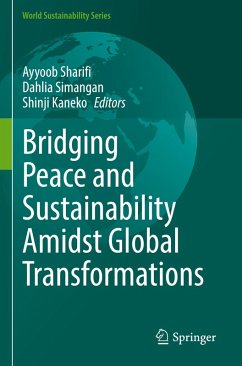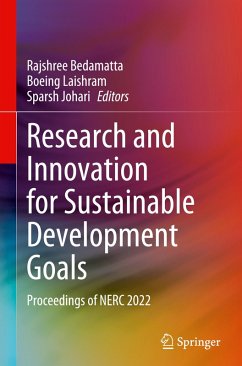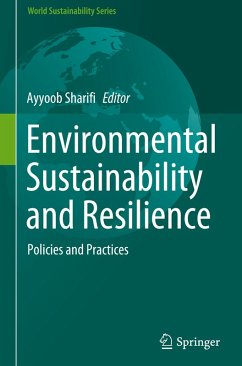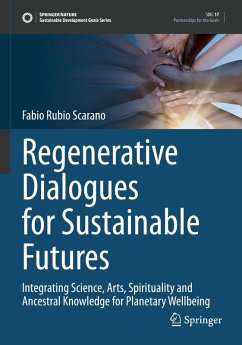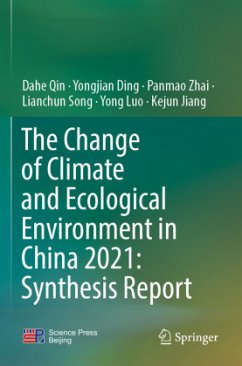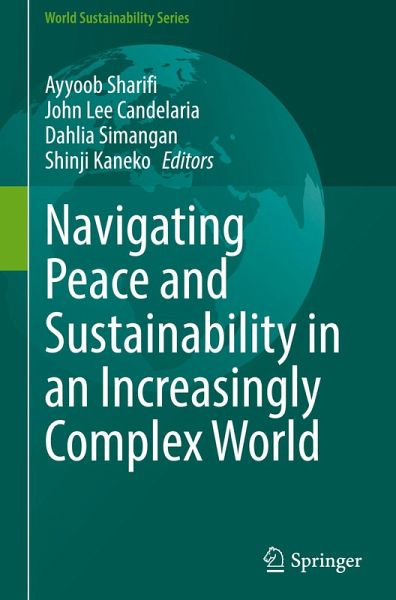
Navigating Peace and Sustainability in an Increasingly Complex World

PAYBACK Punkte
62 °P sammeln!
This book, a sequel to a well-received book titled "Bridging Peace and Sustainability Amidst Global Transformations," delves deeper into the entwined roots of peace and sustainability and emphasizes their interdependence. How are peace and sustainability interconnected, and what key factors define the relationship between them? These questions were examined at the NERPS 2024 conference in Hiroshima and are central to our narrative. In this book, we explore the synergy of peace and sustainability through theoretical frameworks and real-world examples.We recognize that while the 2030 Agenda for ...
This book, a sequel to a well-received book titled "Bridging Peace and Sustainability Amidst Global Transformations," delves deeper into the entwined roots of peace and sustainability and emphasizes their interdependence. How are peace and sustainability interconnected, and what key factors define the relationship between them? These questions were examined at the NERPS 2024 conference in Hiroshima and are central to our narrative. In this book, we explore the synergy of peace and sustainability through theoretical frameworks and real-world examples.We recognize that while the 2030 Agenda for Sustainable Development has acknowledged the link between peace and sustainability, a significant gap remains. Too often, efforts to promote peace and sustainability run parallel, never intertwining, losing the chance to bolster each other. We argue for merging the peace and sustainability agendas to confront contemporary challenges, calling for action to enhance and take advantage of their mutual reinforcement. Through diverse perspectives, this collection illuminates the social, economic, and environmental dimensions of this nexus, serving as a guide for policymakers, a reference for researchers, and a catalyst for dialogue among sectors committed to achieving the Sustainable Development Goals.



